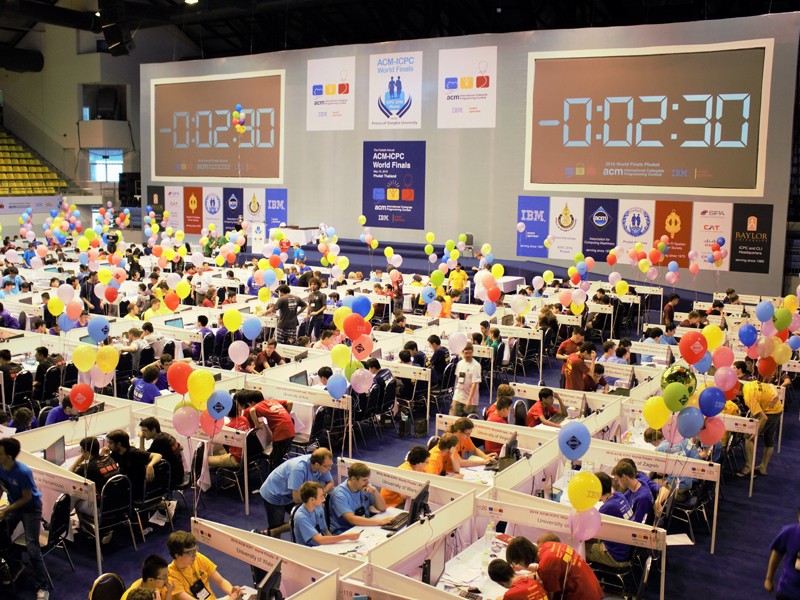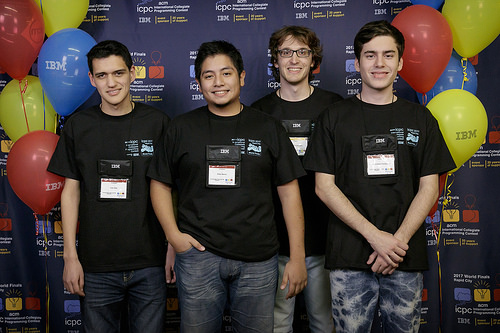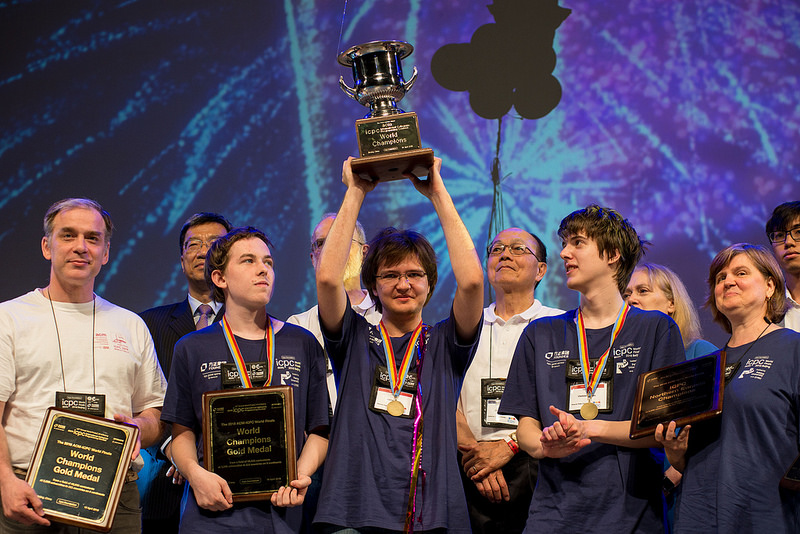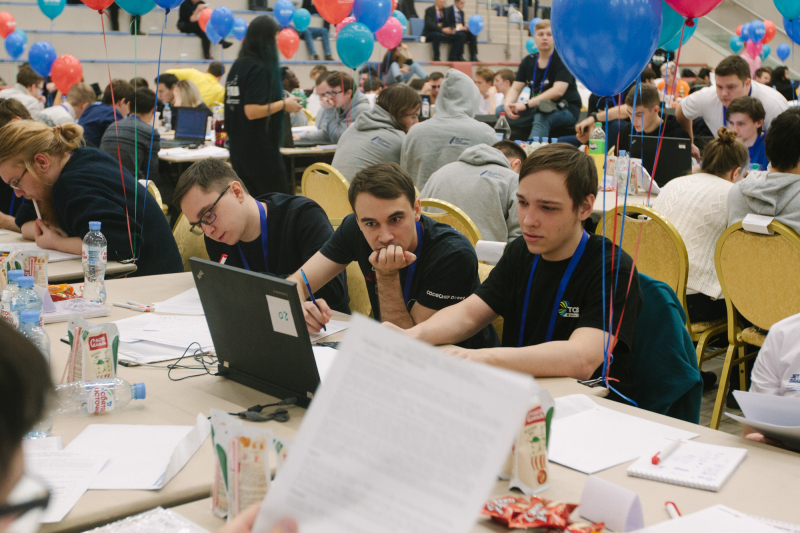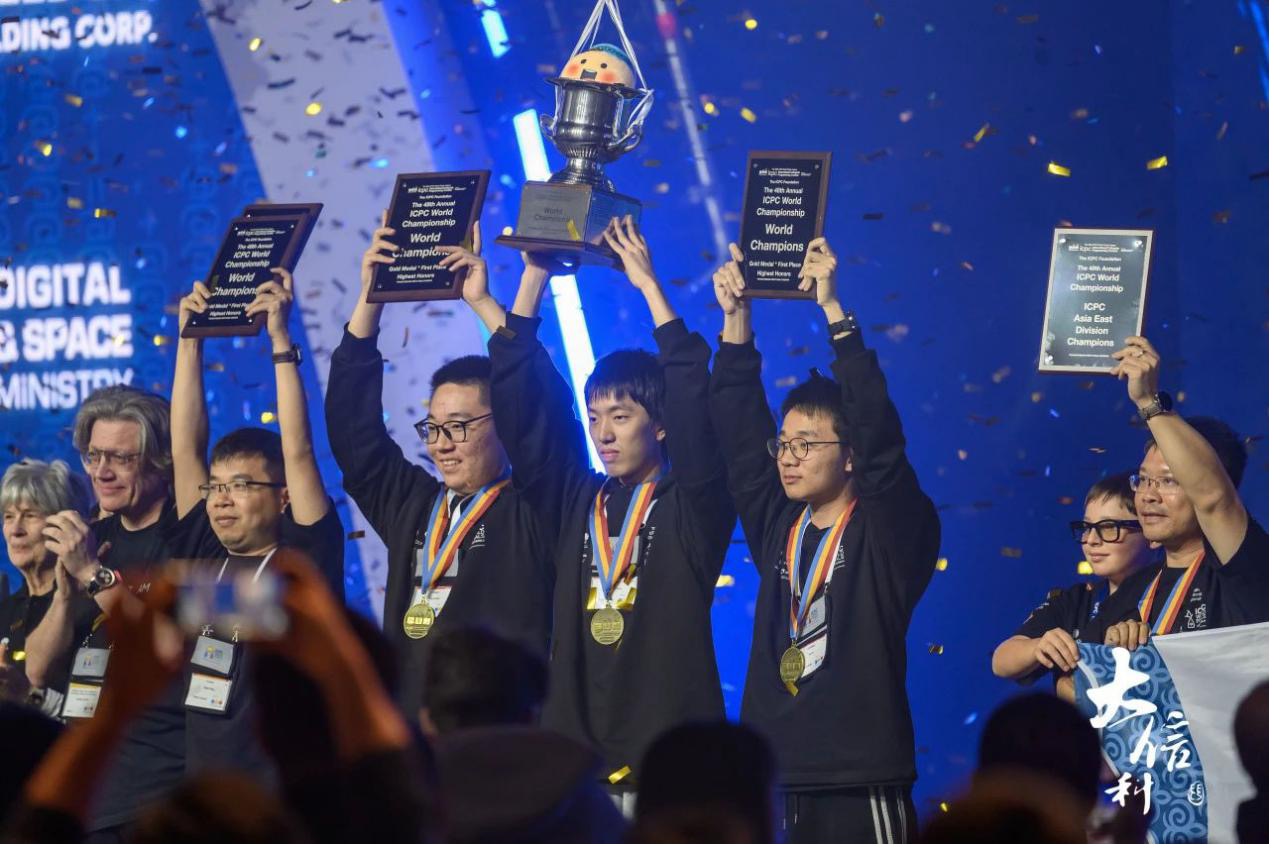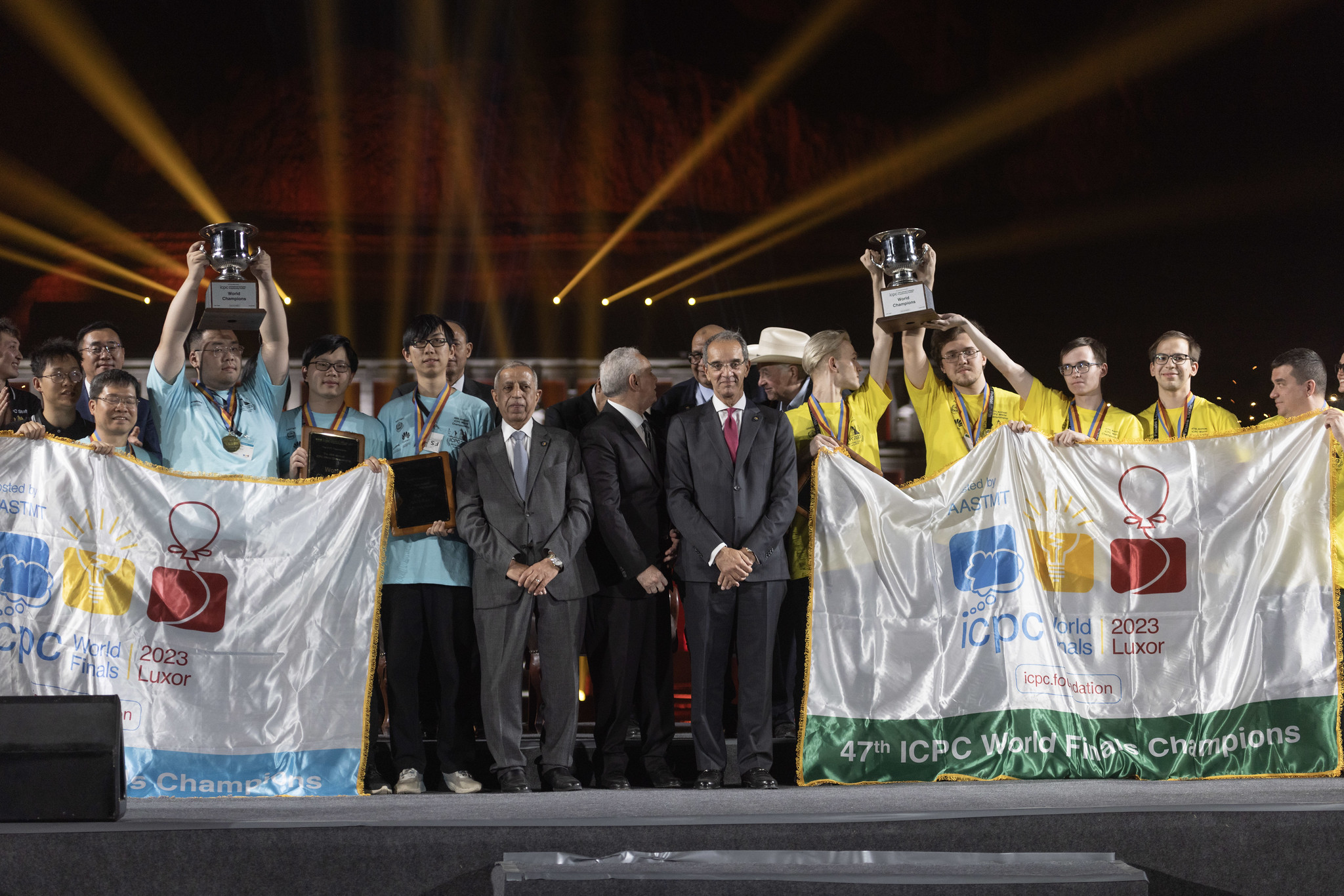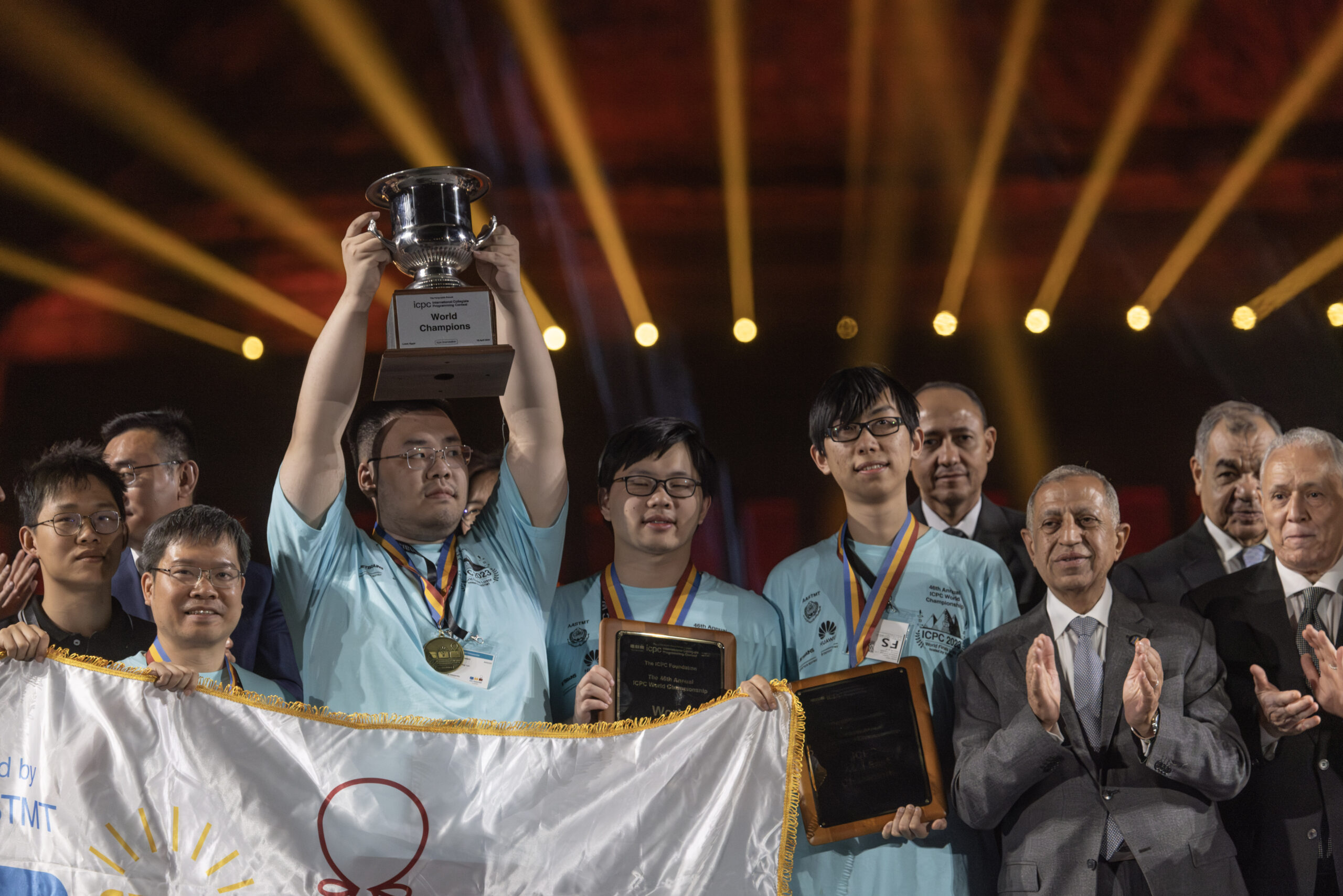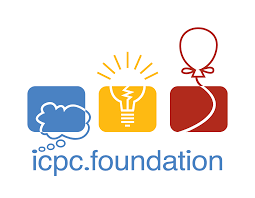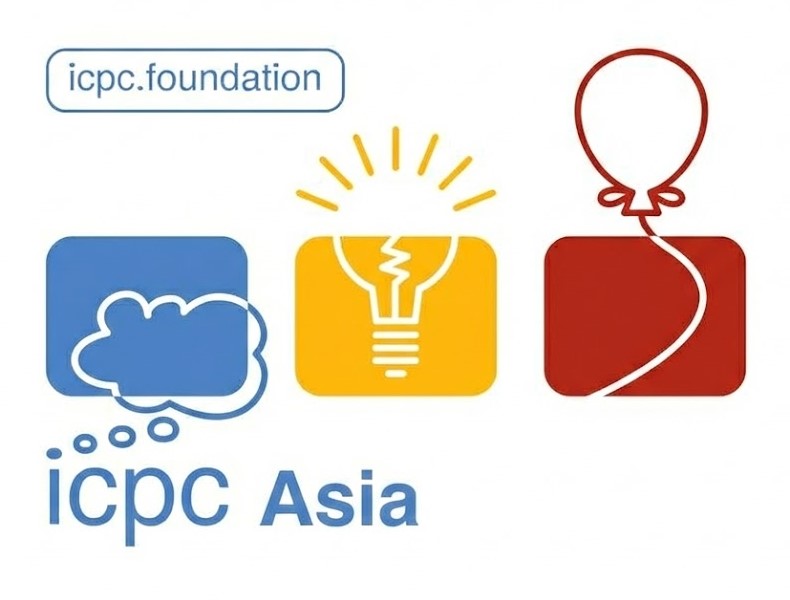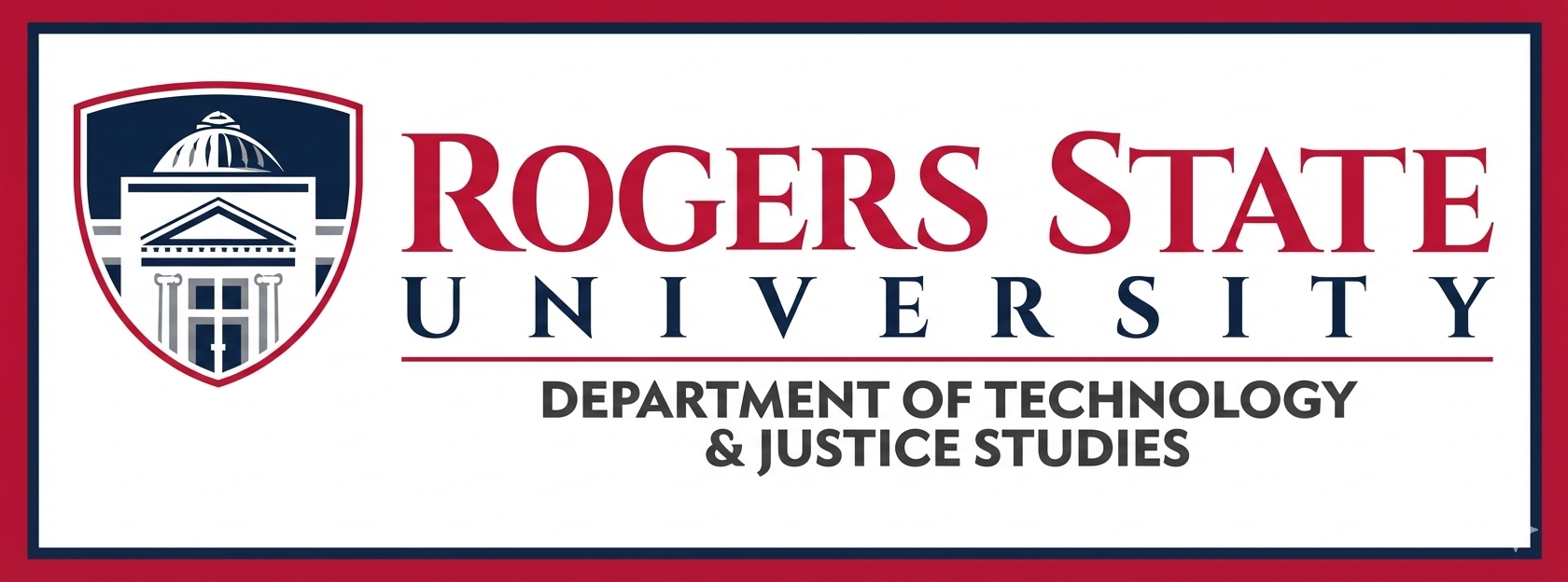About ICPC
The International Collegiate Programming Contest (ICPC) is the oldest, largest, and most prestigious programming contest in the world. The contest traces its roots to a competition held at Texas A&M University in 1970 hosted by the Alpha Chapter of the UPE Computer Science Honor Society.
The ICPC is a team-based programming competition with a rich history spanning decades. Teams of three students work together to solve real-world problems, with a focus on algorithms, data structures, and computational thinking.
The contest provides college students with opportunities to interact with students from other universities and to sharpen and demonstrate their problem-solving, programming, and teamwork skills. The contest provides a platform for industry to see leading students in action and to communicate with them regarding employment opportunities.
